Company Overview: Ormat Technologies, Inc. (NYSE: ORA) is primarily engaged in the geothermal energy power business.
Kalkine’s Daily Report covers the Key Financial Metrics, Risks, Outlook, Technical Analysis along with the Valuation, Target Price, and Recommendation on the stock.
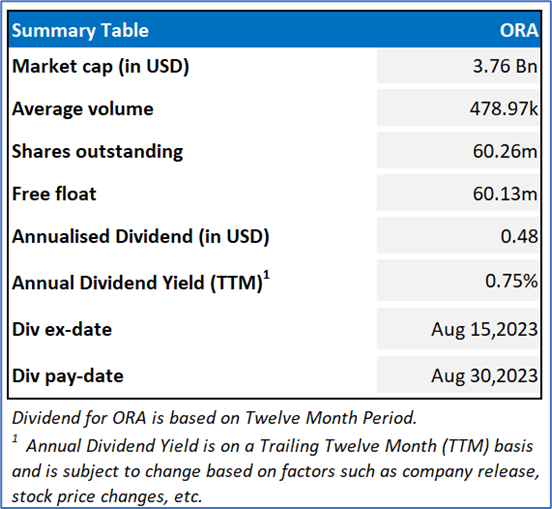
Section 1.0: Key Metrics in Pictures
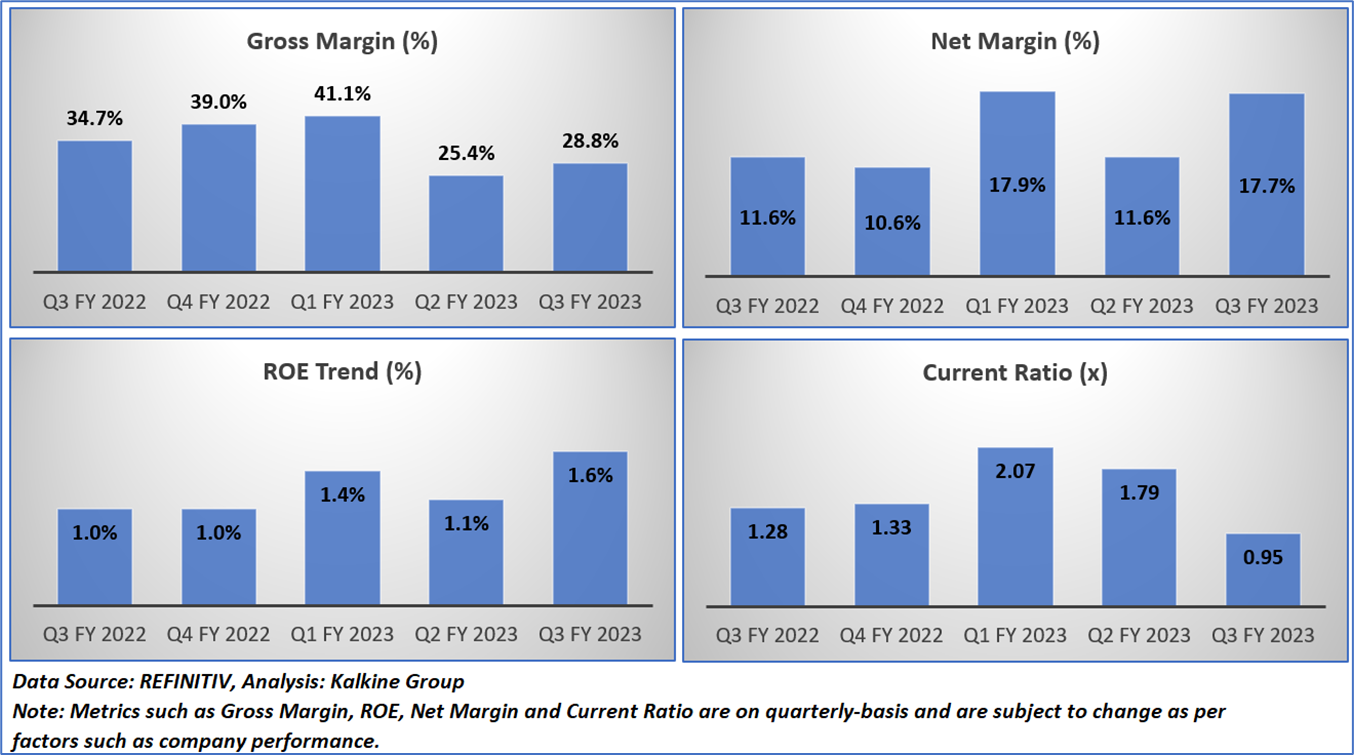
Having looked at the key metrics above, the below sections provide an in-depth fundamental, and technical analysis on one IT stock along with recommendation, technical support and resistance levels and indicative stop-loss.
Section 2.0: Ormat Technologies, Inc. (Buy at USD 62.42 closing price as on 8th November 2023)
2.1 Company Details

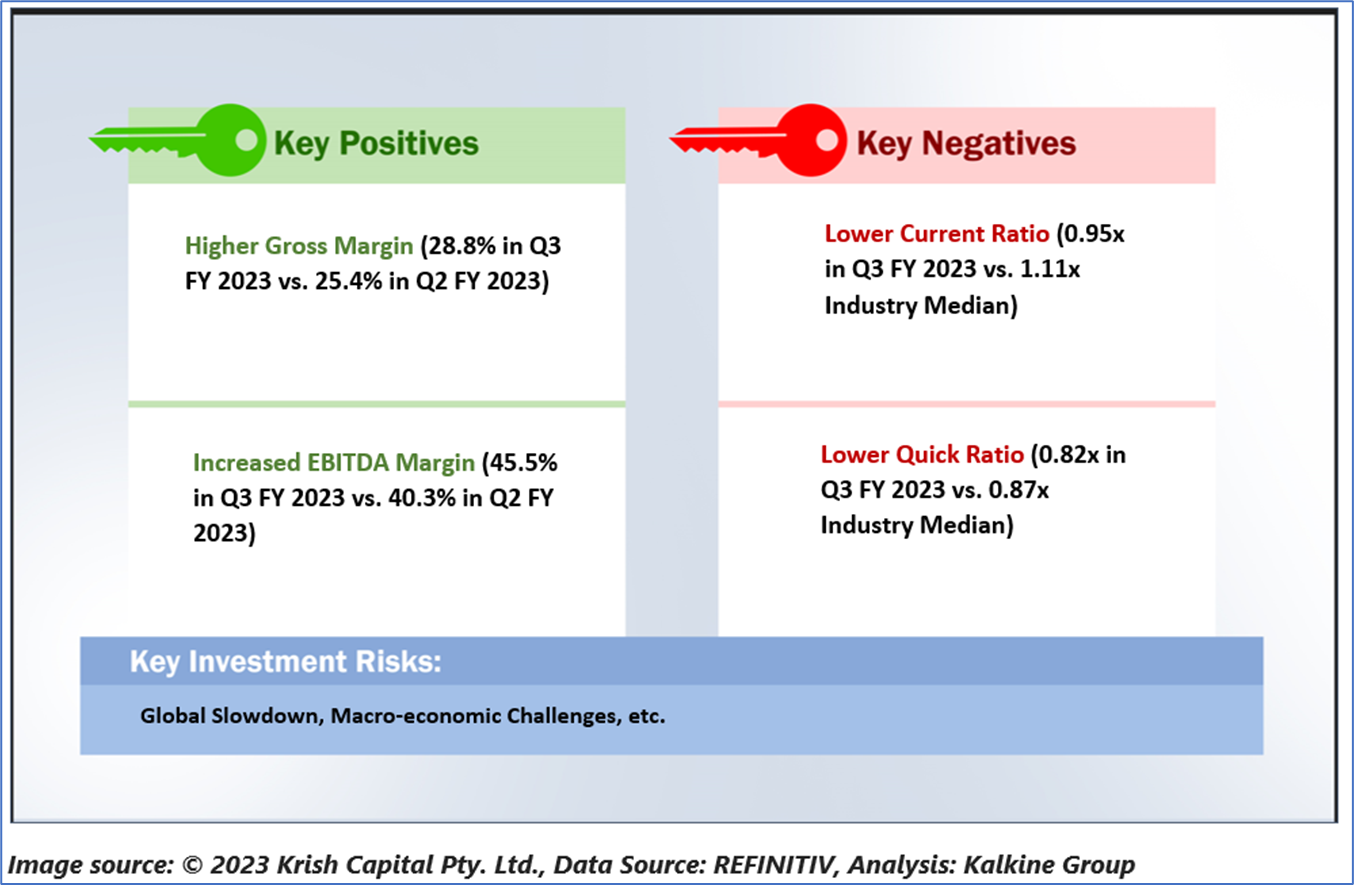
2.2 Valuation and Technical Guidance
The stock has a 52-week low and 52-week high of USD 60.66 and USD 100.9, respectively.
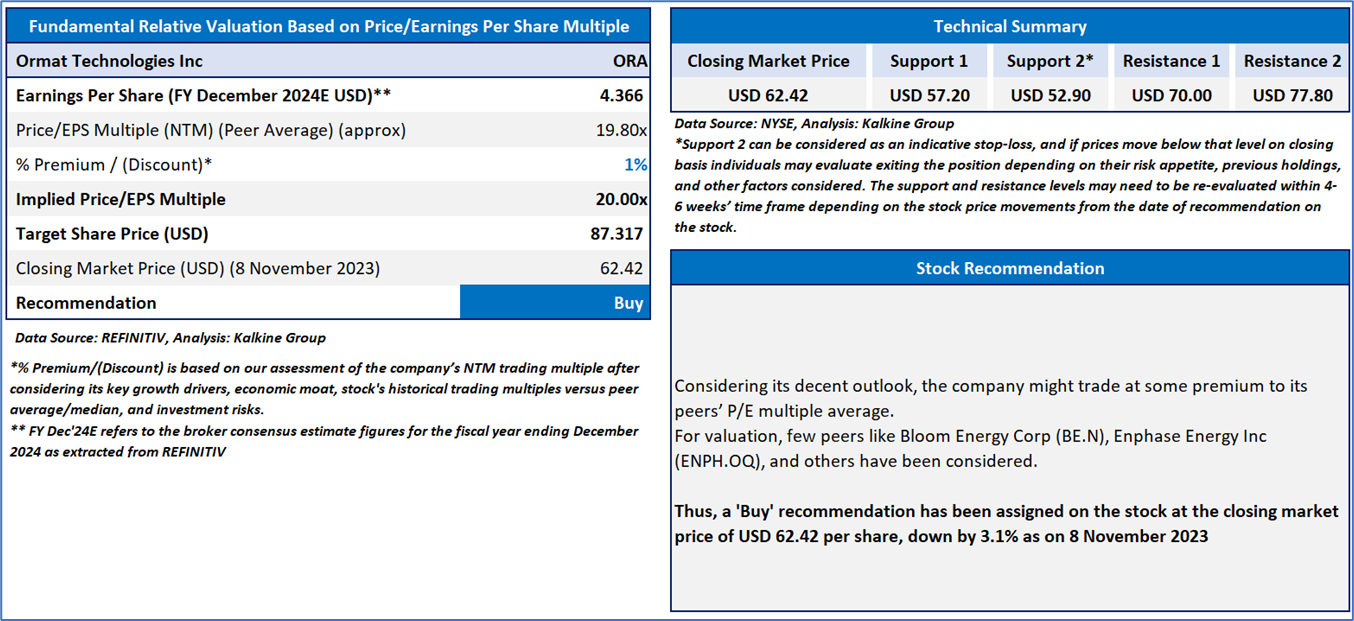
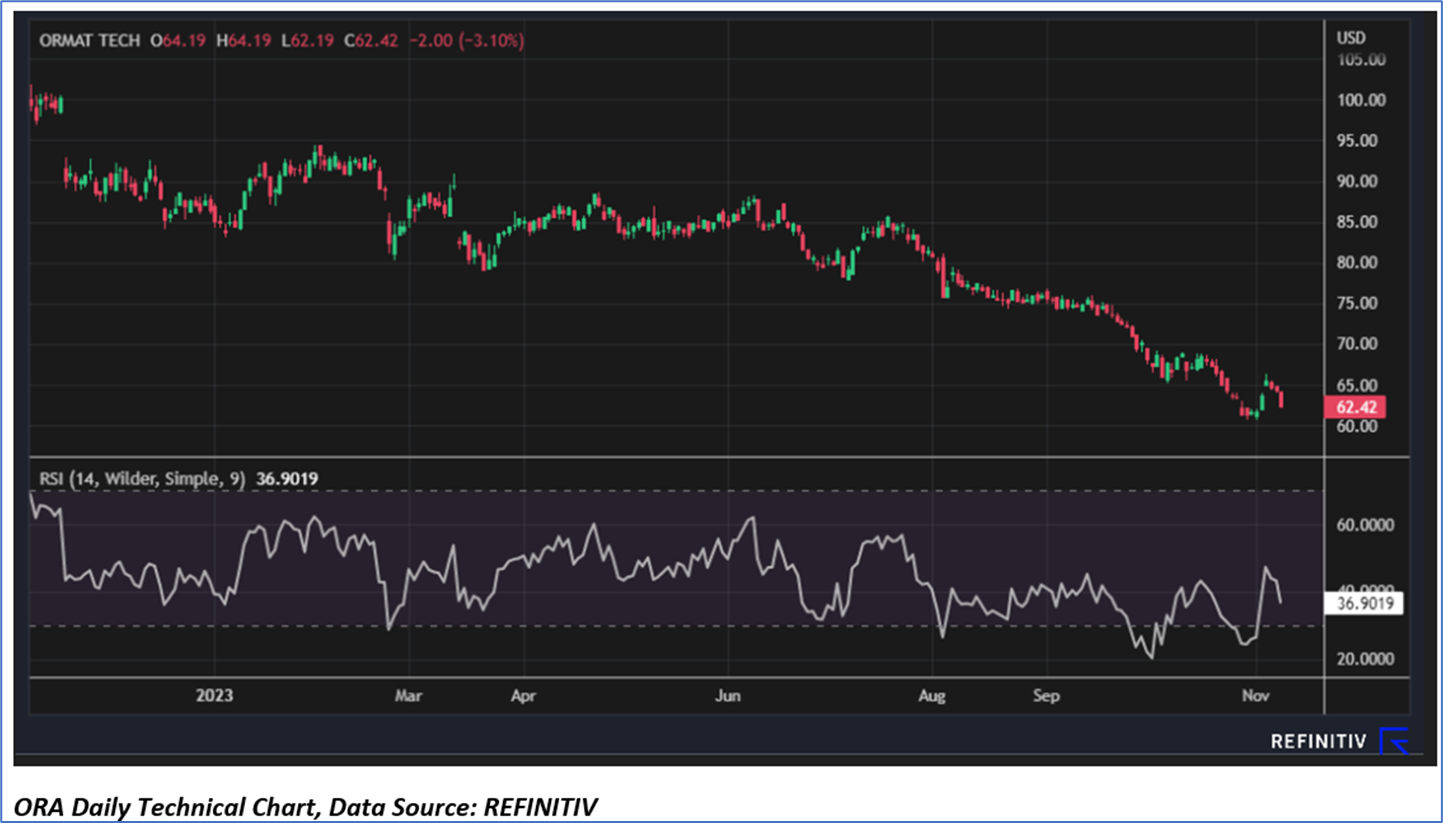
Markets are trading in a highly volatile zone currently due to certain macro-economic and geopolitical tensions prevailing. Therefore, it is prudent to follow a cautious approach while investing.
Note 1: Past performance is not a reliable indicator of future performance.
Note 2: The reference date for all price data, currency, technical indicators, support, and resistance levels is November 8, 2023. The reference data in this report has been partly sourced from REFINITIV.
Note 3: Investment decisions should be made depending on an individual's appetite for upside potential, risks, holding duration, and any previous holdings. An 'Exit' from the stock can be considered if the Target Price mentioned as per the Valuation and or the technical levels provided has been achieved and is subject to the factors discussed above.
Technical Indicators Defined: -
Support: A level at which the stock prices tend to find support if they are falling, and downtrend may take a pause backed by demand or buying interest.
Resistance: A level at which the stock prices tend to find resistance when they are rising, and uptrend may take a pause due to profit booking or selling interest.
Stop-loss: In general, it is a level to protect further losses in case of any unfavourable movement in the stock prices.
AU
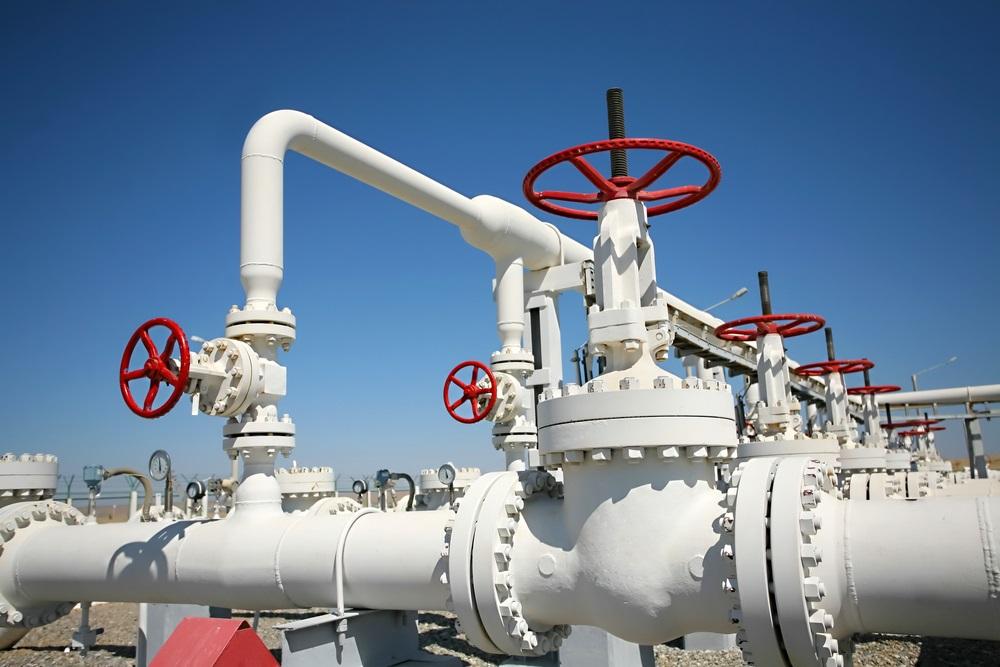






 Please wait processing your request...
Please wait processing your request...